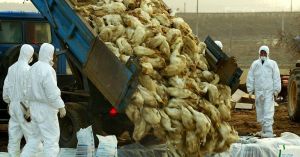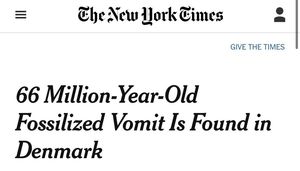With the Delhi Assembly elections on the horizon, Andhra Pradesh Chief Minister N Chandrababu Naidu has launched a fierce assault on the Aam Aadmi Party's (AAP) governance, citing severe pollution, corruption, and infrastructural failures plaguing the national capital.
Criticizing the policies of Arvind Kejriwal’s AAP, Naidu described the party’s leadership as akin to a "half-engine government," which he claims is responsible for Delhi's worsening conditions. During his campaigning for the BJP-led National Democratic Alliance (NDA) on February 3, Naidu categorized Delhi as responsible for two types of pollution: air pollution and political pollution. "Delhi is a victim of two kinds of pollution: air pollution, and political pollution. Both should be avoided," he declared at a press conference.
Naidu asserted the urgency of a "double-engine government" led by the BJP to tackle these crises. Stressing the need for genuine development, he argued, politicians lack the right to distribute wealth without first creating it, labeling this approach as unsustainable. "Politicians have a right to distribute wealth only if they create wealth. This form of wealth distribution model without wealth creation is unsustainable," Naidu emphasized, highlighting his perspective on fiscal responsibility.
The Andhra CM’s remarks come as the election campaigning intensifies, with voters heading to the polls on February 5 and vote counting scheduled for February 8. He lamented the significant decline in employment opportunities within the capital, claiming, "People used to come to Delhi for job opportunities. Now they leave Delhi for opportunities. This needs to be reversed." He questioned the efficacy of AAP's tenure, pointing to the lack of major infrastructure projects over the past decade: "Delhi has seen no major infrastructure projects."
Naidu did not hold back when pointing fingers at AAP's governance style. He accused them of failing to address Delhi’s pollution crisis effectively, particularly mentioning the dire state of the Yamuna River, which he dubbed the most polluted river. He stated, "Yamuna is the most polluted river... Only a double-engine government can do all this." Naidu urged voters to reject what he considered detrimental leadership to secure Delhi's future.
Bringing attention to the capital’s water quality, Naidu compared drinking water and sewage, raising alarms over public health: "There is no difference between drainage water and drinking water in Delhi." This issue, he noted, was emblematic of AAP's governance failures. He cast doubt on their operational capacity, saying, "Can anyone really say AAP's rule in both states has been a success? It’s complete failure."
Further underscoring his argument, Naidu cited the alleged liquor scam linked to AAP as particularly egregious. He referred to it as "the worst" among scandals, stating, "Among all scams, this one stands out as the most damaging. Leaders who fail to generate wealth should not have the right to talk about its distribution." His words reinforced the idea of ethical leadership capable of fostering economic growth.
While focusing heavily on AAP’s shortcomings, Naidu maintained his call for voters to prioritize development when casting their ballots: “Development should be the only criteria for your vote.” He urged people to reflect on the next steps for Delhi, leveraging his background as Chief Minister of Andhra Pradesh to frame the discussion on effective governance.
Naidu's remarks reflect broader debates about performance-based politics versus ideological commitments, asserting, "For me, ideology has become irrelevant. Performance and living standards are becoming relevant." His confidence was palpable as he conveyed his beliefs about the Union Budget's alignment with growth, proclaiming: "I am completely confident about this."
With less than a week to go until voting day, the stakes are high for both Naidu and the BJP as they attempt to rally support against AAP's rule. Naidu confidently declared, "This model is not good for the nation... We need leaders who do not loot the country but those who share the assets."
The upcoming elections represent not only the battle for Delhi's political future but also reflect larger conversations about governance, development priorities, and the responsibilities of elected officials.



